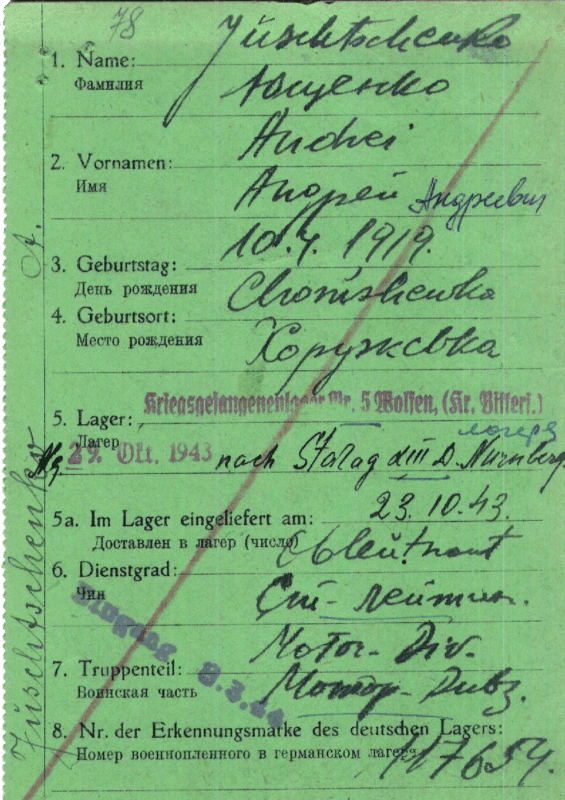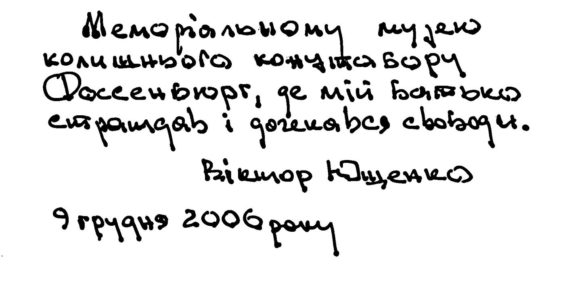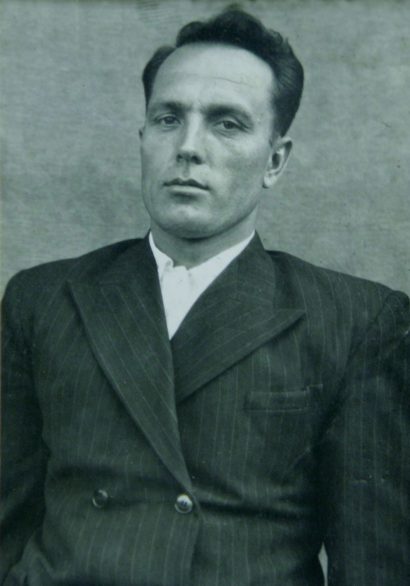Andriy Andriyovych Yushchenko
born April 10, 1919
![]()
Andriy Yushchenko, 1948 (private collection)
Odyssey of a Prisoner of War
Andriy Andriyovych was captured by the Germans several days after the invasion of the Soviet Union. The lieutenant came from Khoruzhivka in the Ukraine. Like hundreds of thousands of Soviet prisoners of war, Yushchenko was transported from the front to the German interior. His path traversed multiple camps and work commandos: Mühlberg on the Elbe, Wolfen, Nuremberg, and finally Lamsdorf in Upper Silesia. In February 1944, the Wehrmacht “released” him from imprisonment due to his political activity and transferred him to the Auschwitz-Birkenau concentration camp.
Yushchenko was transported to Flossenbürg when Auschwitz-Birkenau was dissolved in 1944. He succeeded in escaping from the train, but was caught shortly afterwards and brought to Flossenbürg. Yushchenko survived the final months of the war in the catastrophic conditions of the severely overcrowded camp. When the Flossenbürg camp was evacuated, he hid under the floorboards of a barrack, thus escaping the death march.

Green record card of the Wehrmacht Information Office, 1943 (Central Archives of the Russian Ministry of Defense, Podolsk)
The Wolfen prisoner of war camp reported the transfer of Andriy Yushchenko to Nuremberg.
Like many others who returned to the Soviet Union after the war, Yushchenko was suspected of collaboration. He was not permitted to rejoin his family until after interrogation by the Soviet security services. Yushchenko died in 1992. His son Victor became President of Ukraine in 2005.

Dedication of Viktor Yushchenko, 2006 (Flossenbürg Concentration Camp Memorial)
Dedicated to the concentration camp memorial of Flossenbürg, where my father suffered and regained his freedom. Viktor Yushchenko, September 9, 2006
